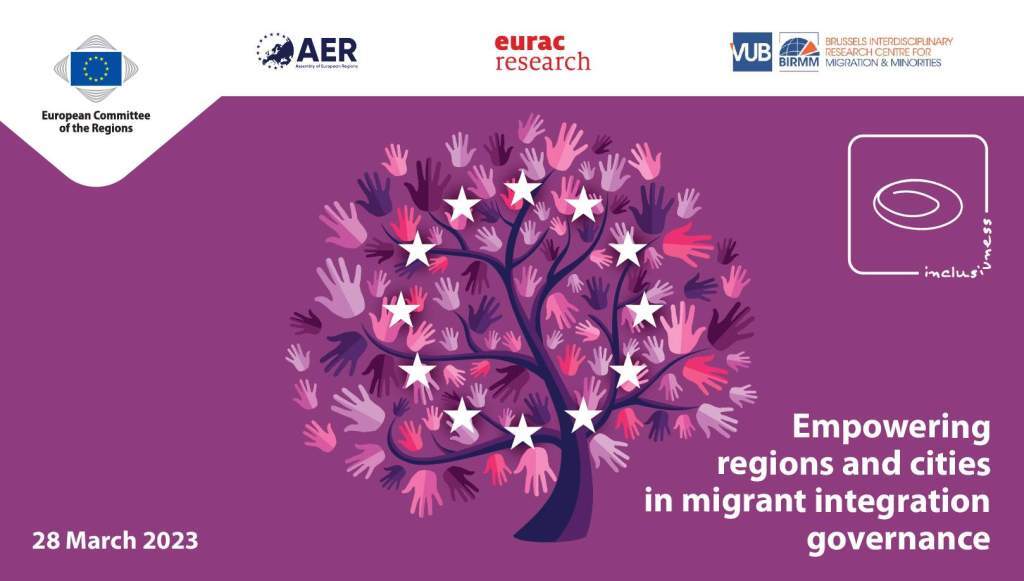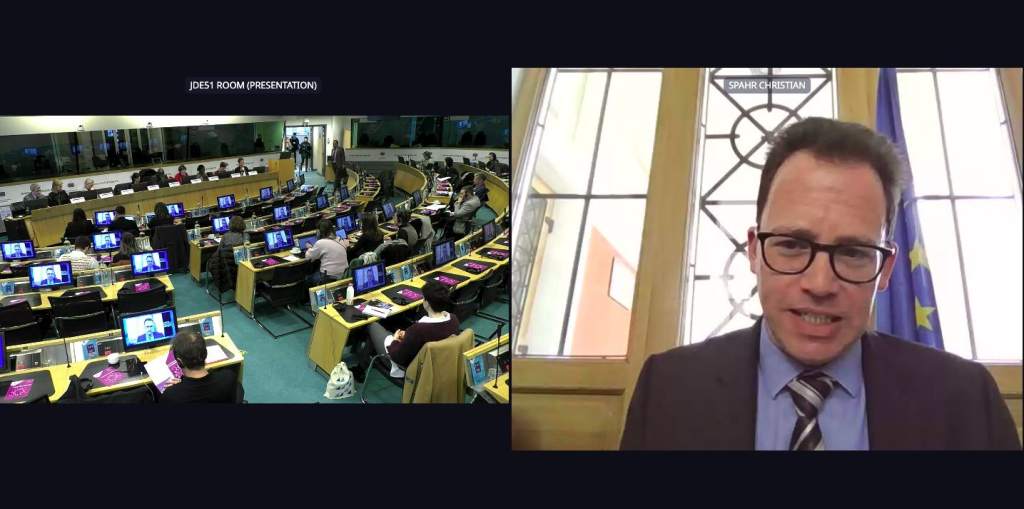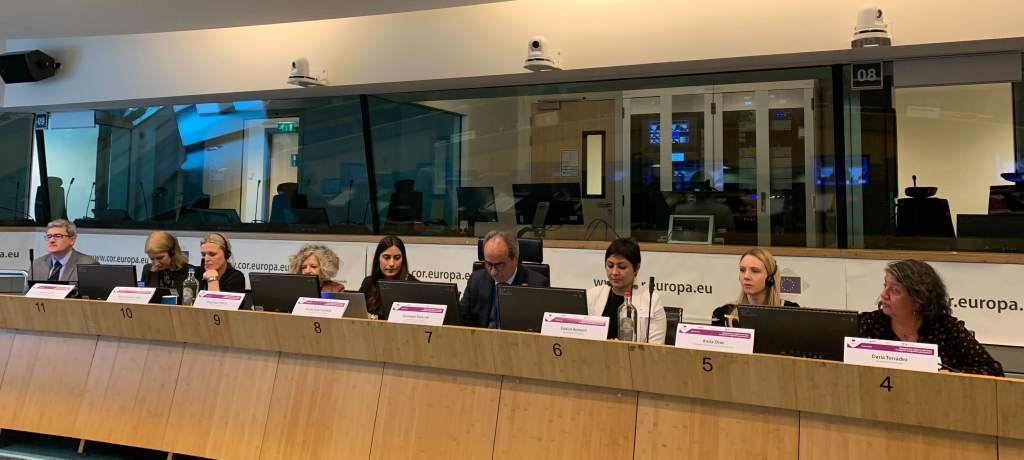 Share this!
Share this!On Tuesday 28th March, the EU Committee of the Regions was the setting for an exchange among public authorities and other stakeholders on the topic of migrants’ inclusion. In particular, the development of multi-level strategies promoting diversity as the backbone of thriving societies was showcased. The intercultural approach and its development within the EU-Belong project offer good practices to be replicated across European regions.
An opportunity for cooperation among public authorities and stakeholders
Last Tuesday, the AER and the EU Committee of the Regions co-hosted the conference ‘Empowering regions and cities in migrant integration governance’. The event gathered stakeholders from several regions and backgrounds, from research institutions to regional authorities, from EU decision-makers to civil society organisations.
In the morning, two debates provided the opportunity to discuss the multi-level dimension of integration governance and the grounds for cooperation on the matter. Indeed, decisions in the area of migration are often taken at national level, although regional and local entities are at the frontline when it comes to the inclusion of third-country national within their communities.
Evidence, experiences and recommendations were showcased by the representatives of research bodies working on the matter, including the BIRMM – Brussels Interdisciplinary Research centre on Migration and Minorities, the Eurac Institute, and the Collegio Carlo Alberto. Here, important reflections sparked from the experience of cross-border cooperation between Austria and Italy and from the presentation of the Whole-COMM project on integration in small-size communities and rural areas.
In addition, funding opportunities in the framework of the Asylum, Migration and Integration Fund were presented by European Commission officials. Interventions by representatives of local authorities across Europe allowed for the showcase of a variety of actions developed at sub-national level on the matter: here, the accent was put on collaboration across levels of governance and the potential conflicts arising from a multi-level approach to inclusion.

Capacity for regions in developing an intercultural strategy
The afternoon session was dedicated to the intercultural approach its development at the regional level in the framework of the EU-Belong project. Giulia Bianchini from the Council of Europe presented the approach as implemented by the Intercultural Cities Programme. Here, diversity is intended as an opportunity to build more inclusive societies and foster a sense of belonging.
EU-Belong adapts the intercultural model to the regional level. Regional authorities involved in the project thus showcased their work on the matter, contributing to the dissemination of good practices, tools, and processes available as the first results of the project are achieved. In particular, representatives of the Emilia Romagna region explained the process of capacity-building undergone by the authority and replicable in other regional contexts. The presentation by Donegal County Council focused on the involvement of multi-level stakeholders that constitutes a fundamental step in developing a strategy for inclusion.
The relevance of reflecting on and adopting effective strategies for the inclusion of third-country nationals was stressed by all speakers. Especially in a moment in which migration is high on the political agenda, the coordinating role of EU institutions must be complemented by actions taken at the national and local level in order to ensure that positive inclusion leads to thriving societies as a result of their increased diversity.
Key takeaways of the event
- Intercultural inclusion can be a successful approach to ensure communities thrive in diversity thanks to migration.
- The intercultural approached is adopted at the regional level by partners involved in the EU_Belong, whose work is involving a growing variety of stakeholders.
- Multi-level cooperation plays a key role and should be encouraged in order to increase capacity and the efficient use of resources for inclusion.
- European Commission funding is available to support projects to improve the inclusion of third country nationals.
- Legal migration and anti-discrimination are overarching topics to consider in order to ensure the effectiveness of inclusion strategies.

Let’s keep in touch!
- Subscribe to the EU-Belong Newsletter
- Visit the EU-Belong project
